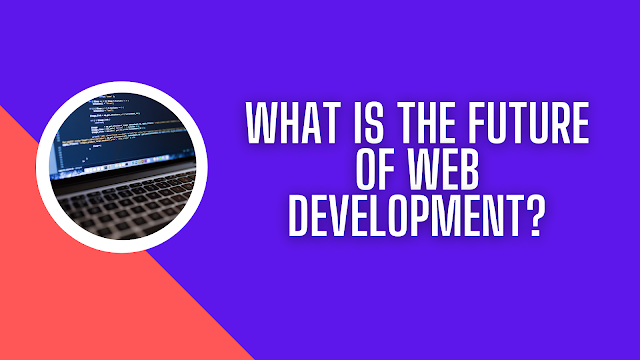In the ever-evolving landscape of technology, the realm of web development is undergoing a fascinating metamorphosis. As we navigate through the 21st century, the future of web development seems to be an exhilarating journey of innovation, efficiency, and user-centric experiences. Let's delve into the key trends and transformations shaping the future of web development.
1. Progressive Web Apps (PWAs):
Progressive Web Apps are redefining the user experience on the web. These applications combine the best of both web and mobile apps, offering seamless interactions and enhanced performance. PWAs are designed to work offline, load quickly, and provide a native app-like experience. With major industry players adopting PWAs, we can anticipate a shift towards more robust, responsive, and engaging web applications.
2. Responsive and Adaptive Design:
As the variety of devices accessing the internet continues to expand, responsive and adaptive design principles are becoming more crucial. The future of web development lies in creating interfaces that seamlessly adapt to various screen sizes and resolutions. This ensures a consistent and optimized user experience across devices, from smartphones and tablets to desktops and beyond.
3. Artificial Intelligence (AI) and Machine Learning (ML):
AI and ML are poised to revolutionize web development by introducing intelligent automation, personalized user experiences, and predictive analytics. From chatbots that enhance customer interactions to recommendation engines that tailor content, the integration of AI and ML will empower developers to create more intuitive and dynamic web applications.
Also Read: What should a Data Analyst know?
4. Blockchain Technology:
Blockchain, renowned for its role in secure transactions, is finding its way into web development. Decentralized applications (DApps) built on blockchain provide enhanced security, transparency, and trust. As the demand for secure online transactions grows, integrating blockchain into web development practices is likely to become more prevalent.
5. Voice Search Optimization:
With the rise of virtual assistants and smart speakers, voice search is gaining prominence. Web developers are now focusing on optimizing websites for voice queries, transforming the way users interact with the internet. The future web will prioritize voice-enabled interfaces, prompting developers to adapt their strategies for a more voice-friendly user experience.
6. WebAssembly (Wasm):
WebAssembly, a binary instruction format for a stack-based virtual machine, is unlocking new possibilities for web development. With the ability to execute code written in languages like C, C++, and Rust at near-native speed, WebAssembly enhances web application performance. Expect to see a surge in the use of WebAssembly for resource-intensive tasks, real-time applications, and more.
7. Cybersecurity and Privacy:
As cyber threats continue to escalate, the future of web development places a heightened emphasis on cybersecurity and user privacy. Developers are incorporating robust security measures, such as HTTPS, encryption, and secure coding practices, to safeguard user data and maintain trust in online interactions.
Conclusion:
In the dynamic landscape of web development, staying ahead requires a commitment to ongoing learning. As the industry embraces innovative trends like Progressive Web Apps, AI, blockchain, and more, the importance of continuous education becomes evident. For aspiring developers and seasoned professionals alike, investing in an online web development course is not just a choice; it's a strategic imperative. These courses provide the latest insights, hands-on experience, and a roadmap to navigate the evolving demands of the digital realm. As we look to the future, the synergy of cutting-edge technologies and comprehensive education through web development course will undoubtedly shape the next generation of web developers, fostering a community of agile, informed, and forward-thinking professionals.
.png)